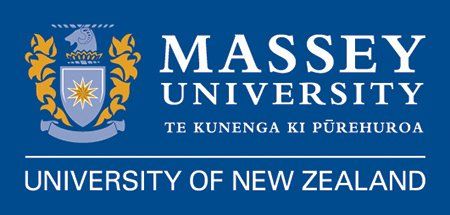
The Basics of Project Management
Course ID: 2508254501242EGI
Course Dates : 25/08/25 Course Duration : 5 Studying Day/s Course Location: Istanbul, Turkey
Language: Bilingual
Course Category: Professional and CPD Training Programs
Course Subcategories: Leadership and Management Excellence
Course Certified By: * Projacs Academy
* Professional Training and CPD Programs
Certification Will Be Issued From :
KSA
Course Fees: £3,430.88
Vat Not Included in the price. VAT may vary depending on the country where the course or workshop is held.
Click to Pay
Date has passed please contact us Sales@e-s-hub.com
Course Information
Introduction
Project management is a cornerstone of organizational success, bridging the gap between strategic vision and operational execution. Regardless of industry, organizations are increasingly reliant on structured approaches to deliver projects on time, within scope, and under budget. From launching new products to implementing complex IT systems, project management ensures that resources are optimized and objectives are met. This course delves into the foundational principles of project management, equipping participants with the tools and methodologies needed to navigate the complexities of modern projects.
Despite its critical importance, many professionals lack formal training in project management, relying instead on trial and error or informal practices. This gap often leads to inefficiencies, missed deadlines, and cost overruns. According to the Project Management Institute (PMI), organizations waste an average of $97 million for every $1 billion invested due to poor project performance. By addressing these challenges, this course provides participants with frameworks such as the PMBOK (Project Management Body of Knowledge) and Agile methodologies, which have been proven to enhance project outcomes across industries.
The benefits of mastering project management extend beyond individual career growth to encompass broader organizational success. For individuals, proficiency in project management opens doors to leadership roles, enhances problem-solving abilities, and fosters adaptability in dynamic environments. Organizations, on the other hand, benefit from improved resource allocation, reduced risk exposure, and increased stakeholder satisfaction. A case in point is NASA’s Mars Rover project, where meticulous planning and iterative processes ensured mission success despite unprecedented technical challenges.
This course draws upon established theories and frameworks, including the Waterfall model, Lean Six Sigma, and Scrum, to provide participants with a comprehensive understanding of project management methodologies. These frameworks are not only theoretical constructs but also practical tools used by leading companies like Google, Amazon, and Tesla to drive innovation and efficiency. By incorporating real-world examples, such as how Toyota revolutionized manufacturing through Lean principles, participants will gain insights into the tangible impact of effective project management.
Moreover, the course emphasizes the human element of project management, recognizing that successful projects require strong leadership, communication, and collaboration. Participants will explore case studies, such as the Sydney Opera House construction, which highlights both the triumphs and pitfalls of managing large-scale, multidisciplinary projects. Through these examples, learners will understand how interpersonal dynamics and stakeholder engagement can make or break even the most meticulously planned initiatives.
Ultimately, “The Basics of Project Management” is designed to empower professionals with the knowledge and confidence to lead projects effectively. Whether you’re overseeing a small team or managing a multimillion-dollar initiative, this course provides the foundation necessary to excel. By blending theory, practice, and real-world application, participants will emerge equipped to tackle the challenges of their respective fields and contribute meaningfully to their organizations’ success.
Objectives
By attending this course, participants will be able to:
Define key project management concepts and terminologies, including scope, timeline, and deliverables.
Apply fundamental project management methodologies, such as Waterfall and Agile, to real-world scenarios.
Analyze risks and constraints using tools like SWOT analysis and risk matrices to develop mitigation strategies.
Design comprehensive project plans, including work breakdown structures (WBS) and Gantt charts, to ensure clarity and accountability.
Evaluate project performance using metrics such as earned value management (EVM) to assess progress and identify areas for improvement.
Implement effective communication and stakeholder engagement strategies to foster collaboration and alignment.
Synthesize lessons learned from completed projects to refine future practices and enhance organizational capabilities.
Who Should Attend?
This course is ideal for:
HR managers seeking to streamline talent acquisition and development initiatives.
Team leaders responsible for coordinating cross-functional efforts and achieving departmental goals.
Consultants tasked with advising clients on process improvements and change management.
Educators designing curriculum development projects or educational technology implementations.
Entrepreneurs managing startups or scaling operations in competitive markets.
These groups will find the course valuable because it addresses common pain points such as unclear objectives, misaligned teams, and inefficient resource utilization. By providing actionable insights and practical tools, the course bridges the gap between theory and practice. While beginners will benefit from the foundational focus, intermediate learners will appreciate the advanced applications covered throughout the program.
Training Method
• Pre-assessment
• Live group instruction
• Use of real-world examples, case studies and exercises
• Interactive participation and discussion
• Power point presentation, LCD and flip chart
• Group activities and tests
• Each participant receives a 7” Tablet containing a copy of the presentation, slides and handouts
• Post-assessment
Program Support
This program is supported by:
* Interactive discussions
* Role-play
* Case studies and highlight the techniques available to the participants.
Daily Agenda
The course agenda will be as follows:
• Technical Session 08.30-10.00 am
• Coffee Break 10.00-10.15 am
• Technical Session 10.15-12.15 noon
• Coffee Break 12.15-12.45 pm
• Technical Session 12.45-02.30 pm
• Course Ends 02.30 pm
Course Outlines
Introduction to Project Management
Overview of project management principles and terminology.
Key differences between traditional (Waterfall) and adaptive (Agile) methodologies.
Understanding the triple constraint: Scope, Time, and Cost.
Introduction to project lifecycle phases: Initiation, Planning, Execution, Monitoring, Closure.
Day 2:
Planning and Scheduling
Developing a project charter and defining objectives.
Creating Work Breakdown Structures (WBS).
Designing Gantt charts and timelines.
Allocating resources effectively to avoid bottlenecks.
Day 3:
Risk Management and Quality Assurance
Identifying potential risks and uncertainties.
Conducting SWOT analyses and building risk matrices.
Implementing quality assurance measures to meet standards.
Strategies for continuous monitoring and control.
Day 4:
Communication and Stakeholder Engagement
Mapping stakeholders and assessing their influence.
Developing communication plans tailored to diverse audiences.
Techniques for conflict resolution and negotiation.
Building trust and fostering collaboration within teams.
Day 5:
Execution, Evaluation, and Continuous Improvement
Executing project plans while adapting to changes.
Measuring performance using Earned Value Management (EVM).
Documenting lessons learned and best practices.
Transitioning projects to operational status seamlessly.



















































